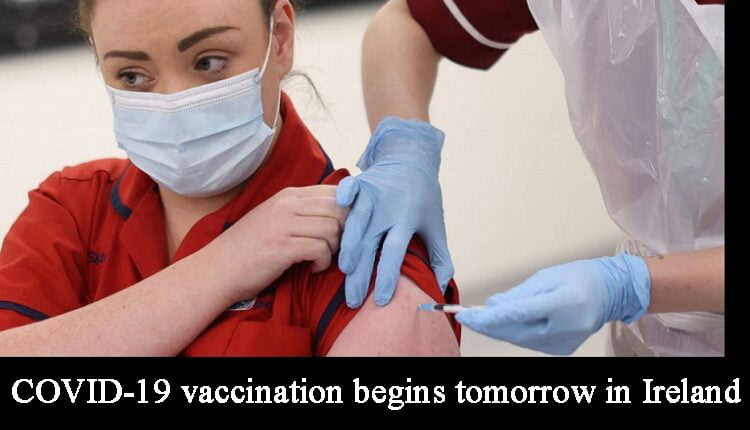COVID-19 vaccination begins tomorrow in Ireland; HSE to start vaccinations a day earlier than announced
DUBLIN: The COVID-19 vaccination in Ireland begins tomorrow. Vaccinations will be held tomorrow at Beaumont, St James’s, Cork and Galway University hospitals. Health Service Executive Chief Paul Reid confirmed that the vaccinations were starting a day earlier than previously planned.
A small number of people at Beaumont, St James’s, Cork and Galway University hospitals will receive the Pfizer BioNTech vaccine tomorrow. He said the registration and consent process was completed over the weekend. Paul Reid had previously stated that vaccinations were not scheduled to begin until Wednesday, 30 December.
Germany and Hungary started vaccination yesterday. He said that obtaining consent to receive vaccinations for the elderly and vulnerable was a complicated process.
Through its six-week action plan, HSE aims to vaccinate all inmates, staff and healthcare professionals in nursing homes from January 4. Vaccination will be completed by the end of February in public and private nursing homes.
About 180 staff are being trained to administer the vaccine in nursing homes. Mr. Reid said 1,500 people would also be trained in hospital systems. The vaccination system will be further expanded to include GPs and pharmacists.
Paul Reid revealed that vaccination dates have been set for all private and public nursing homes across the country. Tadhg Daly of Nursing Homes Ireland said the schedule was distributed to all homes on Christmas Eve. Vaccinations for nursing homes will begin on January 11th.
10,000 doses of Pfizer-BioNtech vaccine will arrive in Ireland for distribution in January. Mr. Reid said the Moderna vaccine is awaiting approval from the European Medical Agency.
Mr. Reid took to Twitter to ask people to review their New Year travel plans as the number of positive tests increases. He noted that contact tracing calls had risen from around 9,000 per week to over 30,000.
He said the health service was in a stronger position and there were 82% fewer patients on trolleys. But the increase in infections is worrying, Mr. Reid added.


Comments are closed.